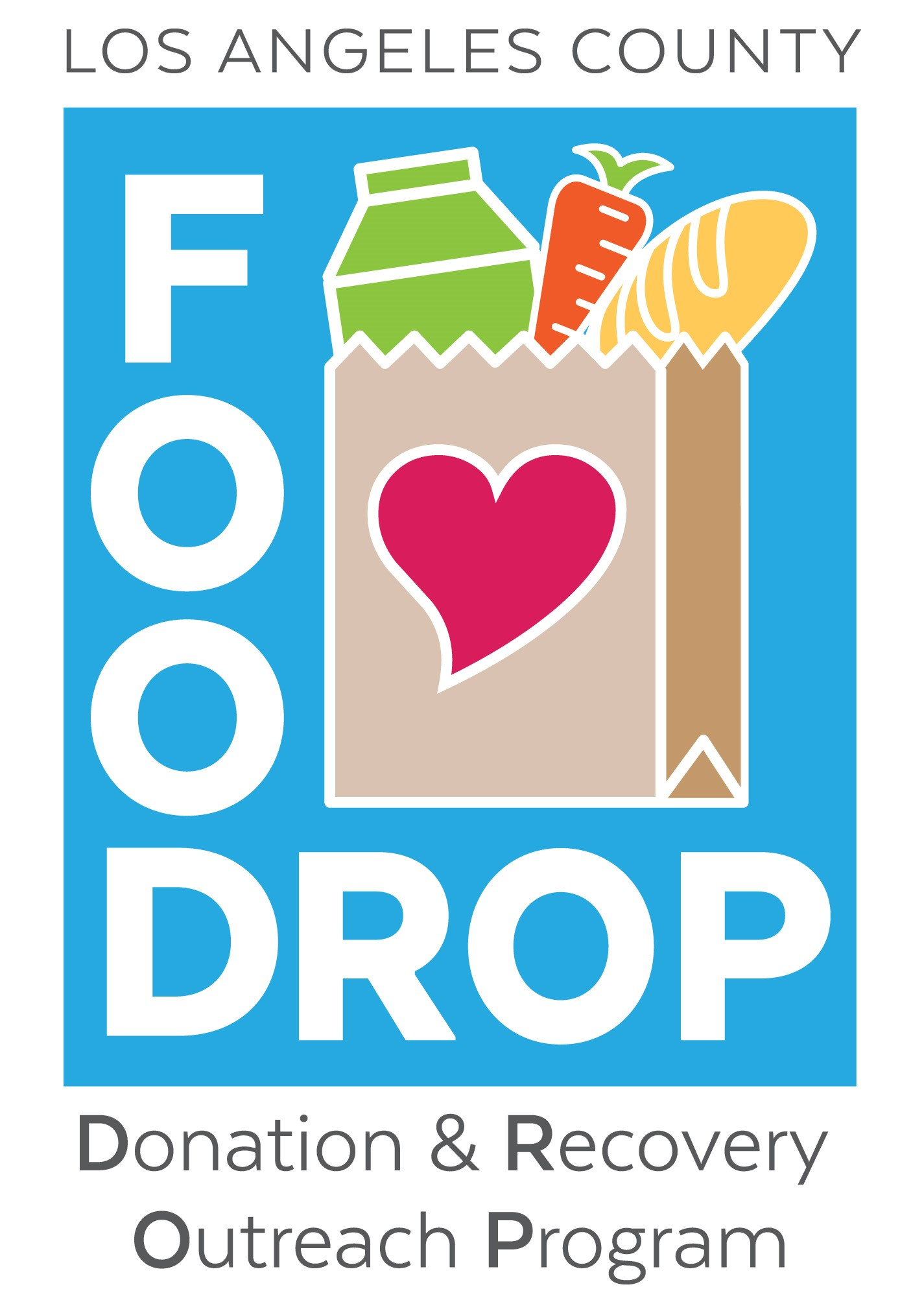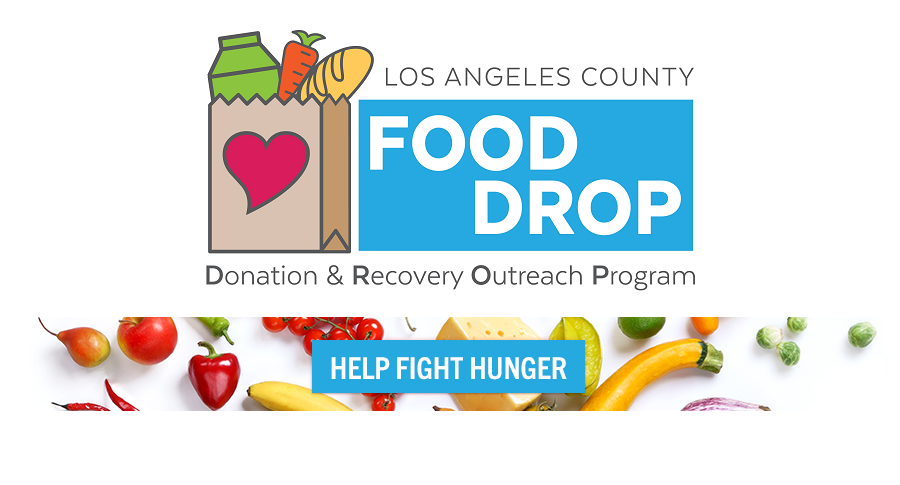 The Los Angeles County Food DROP Program
The Los Angeles County Food DROP Program
Mission: To provide resources for businesses operating in the County Unincorporated Communities so that they may (1) safely donate their excess edible food to fight hunger, and (2) reduce food waste in Los Angeles County.
Vision: All food service businesses operating in the Los Angeles County Unincorporated Communities safely donate their excess edible food to feed people in need in Los Angeles County.

Donate your surplus edible food and help fight hunger.

Be a part of the edible food recovery effort in LA County. Sign up!

Get the latest news about Food DROP and the Smart Business Recycling Program by signing up for our quarterly newsletter!
Why Donate?
HELP FIGHT HUNGER
Each year, the Los Angeles County Unincorporated Communities toss 128,000 tons of food into the trash. Meanwhile, approximately 1 in 4 individuals are food insecure (lacking regular access to quality nutritious meals). Working with other County departments, Public Works has partnered up with local charities to offer businesses a food donation option through Food DROP.
SENATE BILL 1383 (SHORT-LIVED CLIMATE POLLUTANT REDUCTION STRATEGY)
SB 1383 set a statewide goal for large food generators to donate at least 20 percent of edible food currently disposed of for human consumption by 2025.
For Commercial Edible Food Generators (EFGs):
.JPG)
Info Sheet
.png)
Flyer
TAX DEDUCTIBLE
All businesses that donate food to a 501(c)(3) for the care of the ill, the needy, or infants can receive an enhanced tax deduction.
FOOD DONATION TOOLKIT
Explore our tools below to learn about (a) state legislation regarding organic waste diversion and food donation; (b) Los Angeles County Department of Public Health’s food safety guidelines; (c) find an interactive map of our food recovery partners; and (d) refer to our Food DROP brochure for a quick overview of our program.
You’re Protected!
Did you know that food facilities that donate any food to a nonprofit charitable organization for human consumption is not liable for any damage or injury resulting from that consumption of the donated food, unless the injury resulted from negligence or a willful act? Read more below:
California Health and Safety Code, Section 114432(a)
A person, gleaner, or food facility may donate food to a food bank or to any other nonprofit charitable organization for distribution to persons free of charge. Food facilities may donate food directly to end recipients for consumption.
California Health and Safety Code, Section 114433
No food facility that donates food as permitted by Section 114432 shall be subject to civil or criminal liability or penalty for violation of any laws, regulations, or ordinances regulating the labeling or packaging of the donated product or, with respect to any laws, regulations, or ordinances, for a violation occurring after the time of donation.
California Civil Code, Section 1714.25(a)
Except for injury resulting from gross negligence or intentional misconduct in the preparation or handling of donated food, no person, gleaner, or food facility that donates food that is fit for human consumption at the time it was donated to a nonprofit charitable organization or food bank shall be liable for any damage or injury resulting from the consumption of the donated food. Food facilities may donate food directly to end recipients for consumption.
United States Code, Bill Emerson Good Samaritan Food Donation Act, Title 42, Chapter 13A, Section 1791(c)(I)
A person or gleaner shall not be subject to civil or criminal liability arising from the nature, age, packaging, or condition of apparently wholesome food or an apparently fit grocery product that the person or gleaner donates in good faith to a nonprofit organization for ultimate distribution to needy individuals.
Assembly Bill 1219 (Eggman, 2017), California Good Samaritan Food Donation Act
Existing law specifies that a food facility that donates any food that is fit for human consumption at the time it was donated to a nonprofit charitable organization or a food bank is not liable for any damage or injury resulting from the consumption of the donated food, unless the injury resulted from negligence or a willful act in the preparation or handling of the donated food.
This bill, the California Good Samaritan Food Donation Act, would expand these provisions to persons and gleaners who donate food, as defined. The bill would narrow the exception to protection from liability to injury resulting from gross negligence or intentional misconduct. The bill would specify that the immunity from civil liability provided by these provisions applies to the donation of food that is fit for human consumption and that has exceeded the labeled shelf life date recommended by the manufacturer, provided, in instances of perishable food, the person that distributes the food to the end recipient makes a good faith evaluation that the food is wholesome. The bill would authorize food facilities to donate food directly to end recipients for consumption.
Start Donating!
Use our Find a Recycler tool to find a food recovery and/or redistribution organization near you!
Check out our Food Donation Toolkit for food safety guidelines and learn about our Food DROP program. You can also request a consultation from us to help you set up a safe food donation process at your location.